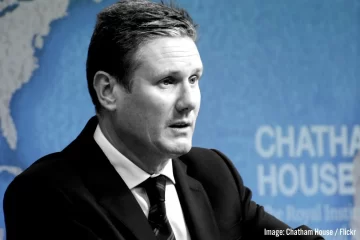The 48 hour walkout by junior doctors on April the 6th will mark the fourth junior doctors’ strike in the UK. April and March will see three 48 hour walkouts, the final one being on the 26th of April.
This unprecedented action being taken by junior doctors is a direct result of the attempts by the Conservative government to implement new contracts that would increase the hours of junior doctors without a proportional increase in wages. The health secretary Jeremy Hunt attempted an unsuccessful negotiation with the BMA (British Medical Association – the doctor’s union) that would bring in a contract under which junior doctors would work weekends at the same rate as they would work any other day. The negotiation was unsuccessful because doctors and the BMA rightly contended that the longer and irregular hours that the contract was imposing would lead to poorer outcomes for patients due to Doctors being overworked, and did not represent fair compensation for junior doctors who would be expected to work at weekends for less than the pay rate that they currently get for working on a Saturday.
This led to the health secretary deciding to escalate the matter by attempting to impose the contract on Junior Doctors with no further negotiation. The BMA rejected this contract, as it had done previous ones, as an attempt by the government to force some of the hardest working members of the NHS to work even longer hours, endangering patients and putting the burden of Tory austerity onto both doctors and their patients
Since 2010 spending cuts have occurred throughout the public sector, with the NHS in England being (relative to other departments) protected from these cuts. However, this represents a Tory government emboldened by their newly gained parliamentary majority attacking the conditions of the working class within the NHS, an institution they supposedly support. The Junior Doctors were targeted for these attacks because they were seen as an easy target by the Tories. Doctors have not called a strike since the NHS was founded, and Junior Doctors are on contracts which expire on an annual basis, making it particularly hard for them to organise. However, these strikes show that when workers such as Junior Doctors are pushed and squeezed they will radicalise and respond with a mass movement, in this case a series of 24 hour and 48 hour strikes.
This is part of a privatisation of the NHS that has been being carried out for over a decade. This contract is an attempt not just to cut government spending at the expense of the working class, but to ensure that privatisation of the NHS is made easier and more profitable for those who take over. If the Junior doctors had accepted the contract, a private firm could run the NHS at a higher profit. This is clearly the government’s plan, as shown by their continued willingness to allow NHS contracts to be given to private care providers.
These strike actions represent the first in many fight backs by NHS workers against private capital. The NHS was won by workers, for workers, at a time when capitalism was in an historic upswing. Now that boom has turned to permanent recession, the capitalists and their representatives in Parliament find themselves increasingly unable to afford the basic health care needed by so many across Britain. These strikes are a much needed defence of the rights of workers and everyone’s right to health care. The facts are clear though, capitalism cannot sustain the hard won right to basic healthcare. Only through a working class, socialist revolution can we protect the NHS. These strikes are a step forward towards that revolution, and a step forward to a truly democratic, worker led, planned economy that can provide healthcare for all on a permanent basis.
by Ed Rosier, Manchester Marxists



